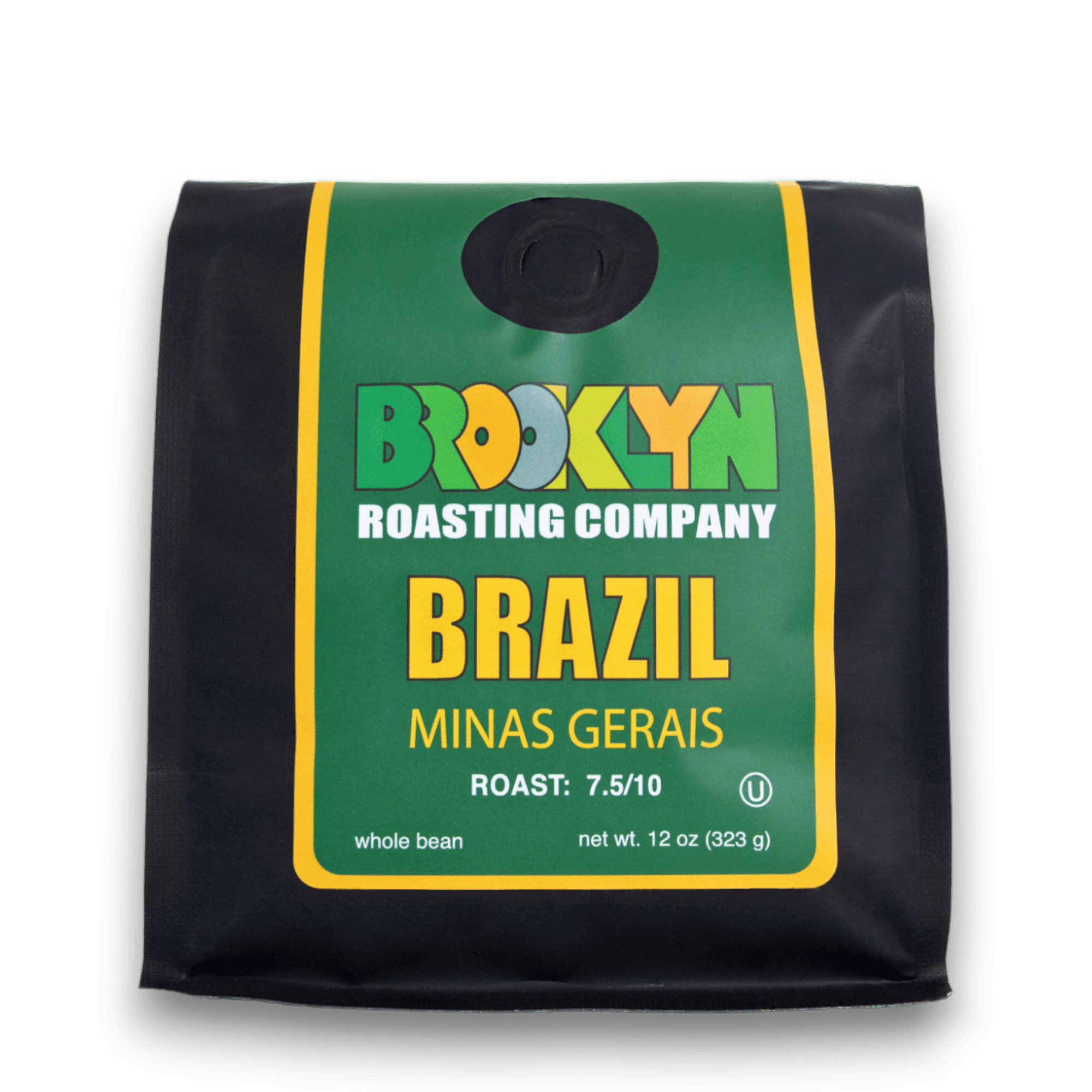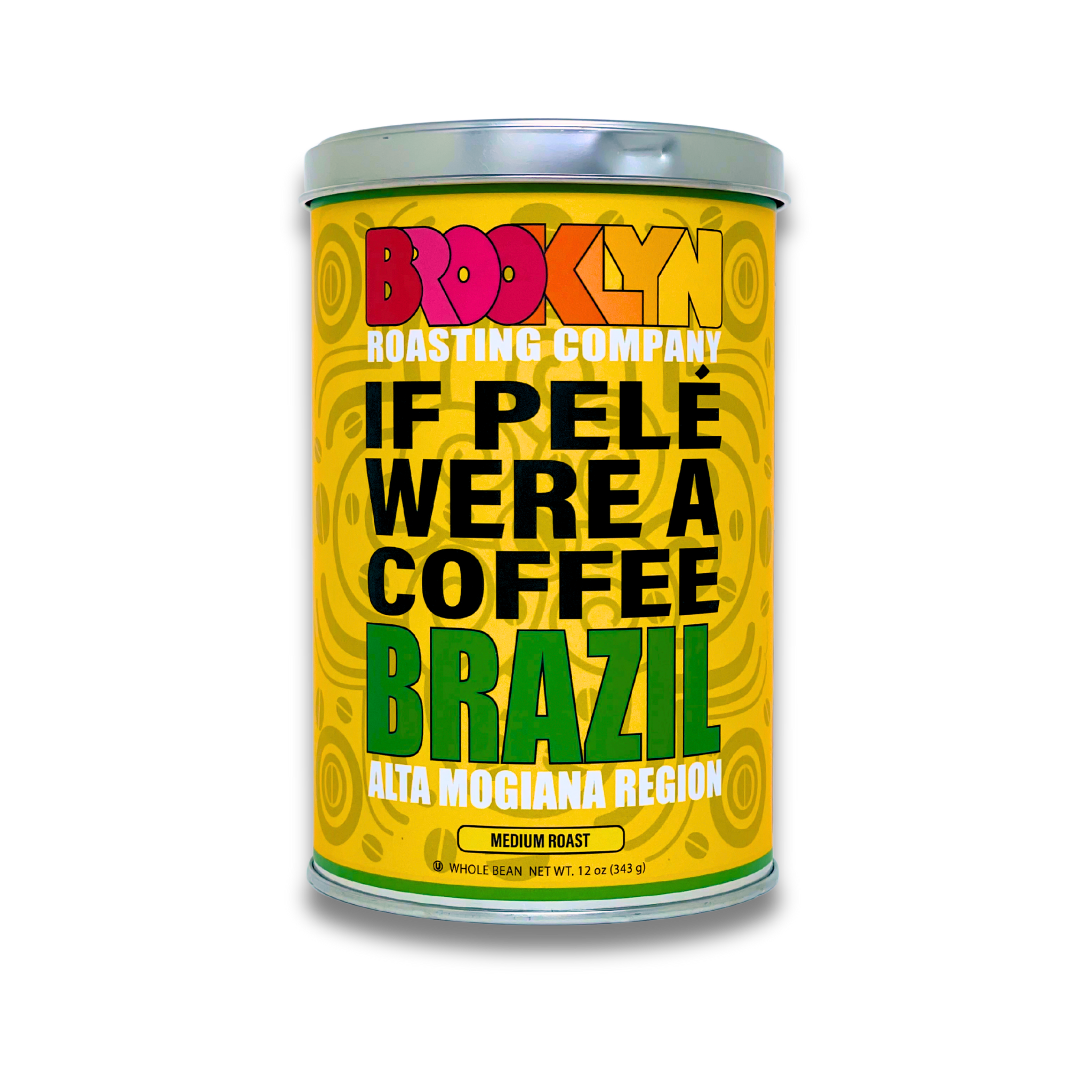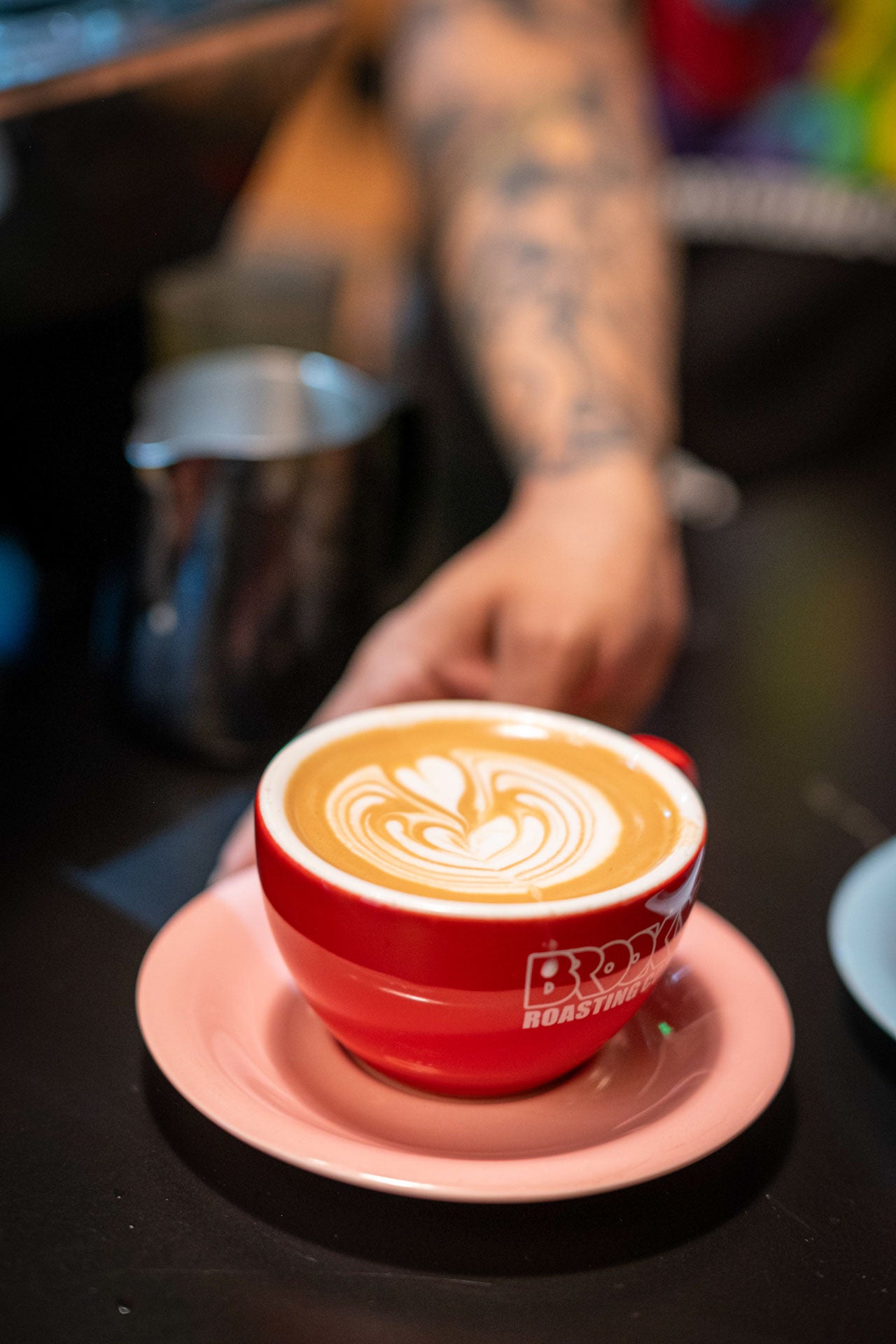Brazil
Roast
If Goldilocks drank coffee, she would choose this one—not too heavy, not too light, not too dark and not too bright. Just right. A true coffee lover's coffee.
Grown in the legendary Mogiana region, these beans are mellow and warming with notes of pecan, roasted almond and sweet milk chocolate. From a land of rolling hills and uneven terrain, the farms that source these beans need to be much smaller than the big, highly mechanized estates Brazil is usually known for.
Mogiana is the most renowned of Brazil's three major growing regions, a reputation owing to its more manual approach to growing methods and the many smallholder producers in this region.

THE DETAILS
| Process | Natural |
|---|---|
| Drying | Sun-Dried |
| Notes | Pecan, Almond, Milk Chocolate |
| Origin | Alta Mogiana, BRAZIL |
| Altitude | 2,900 - 3,300 ft. |
| Varietal | Mundo Novo (Bourbon, Obatã) |
| Body | Balanced |
| Type | Brewed |
| Harvest | May - August |
Coffee is the seed of a tropical evergreen shrub. Growers around the world harvest and process a wide range of coffee varietals grown under widely different conditions. The genetics of the plant and the "origin terroir” greatly contribute to the character of the coffee you wind up tasting in the cup. At the Brooklyn Roasting Company we search out the world’s finest coffees and expertly roast them to tease out their many colorful characters. Our coffee team is constantly evaluating the coffees we source (or consider sourcing). At the outset, we measure the moisture content of incoming “green” and then sample roast these lots to determine the optimal profile for each coffee on a larger, commercial scale. We cup each sample roast on rotating stone tables equipped with circulating hot water baths, and a thick, tempered glass surface that floats on zany 1960’s superballs and hula hoops. This playful, colorful backdrop to cupping and assessing coffee–the core of our craft– is a constant reminder to appreciate and unlock the flavors and aromas that characterize the extraordinary beans we buy. Taken together with our “Color of Coffee” tasting approach, this crucial quality control step typifies our “serious but not snobby” approach.






